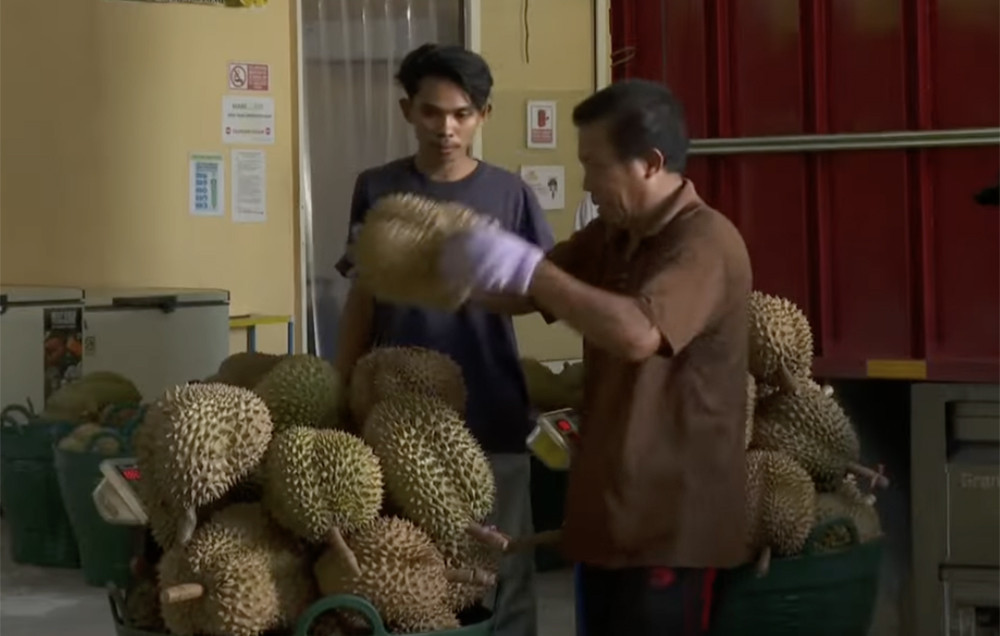
Indonesia aims to begin exporting frozen durians to China this year, positioning itself as a potential competitor to Vietnamese durians in the massive Chinese market, alongside Thailand.
According to CNA, Parigi Moutong, a district in Central Sulawesi, Indonesia, is known for its Monthong durians. This variety, originally from Thailand, is also widely grown in Indonesia and Vietnam. The Monthong durian is large, typically weighing around 3-5 kg, with a creamy texture, sweet flavor, small seeds, and thicker flesh compared to most other varieties.
Central Sulawesi has approximately 30,000 hectares of durian plantations, but only 10% of them are officially recognized by local authorities. Most farmers still use simple cultivation methods. Although Indonesia's frozen Monthong durians have been sold in China, they were exported via Thailand.
Frozen durian exports to China set to rise
Indonesia plans to directly export frozen durians to China by the end of the year following a groundbreaking agreement between the two countries. PT Silvia Amerta Jaya, one of 14 durian processing facilities in Parigi Moutong, has registered to export frozen durians directly to China. The company collaborates with a network of 500 durian farmers.
In a campaign known as "durian diplomacy," Beijing has pledged to open its domestic market and increase imports of durians from Southeast Asian countries. Indonesia is targeting the enormous demand from China, where the import value of this fruit reached nearly $7 billion last year.
Muhammad Tahir, Director of PT Ammar Durian Indonesia, stated that exporting via Thailand takes about a month to reach China. In contrast, direct shipping from Pantoloan Port (in Palu, Central Sulawesi) to China takes only about a week.
Additionally, the cost of transporting durians directly to China is half of that incurred when exporting via Thailand. Last year, the company shipped 30 containers of durians and plans to increase exports to 50 containers once direct routes to China are established.
Stringent export requirements
China imposes strict requirements on durian exports, demanding that Indonesian farmers and suppliers comply with rigorous standards to ensure high-quality control. The entire supply chain must be traceable, from plantation to packaging and shipping.
Ahmad Mansuri Alfian, head of the Animal, Fish, and Plant Quarantine Center in Central Sulawesi, explained that a barcode system has been introduced, allowing for easy traceability by scanning the barcode at any point in the process.
"We hope to equip farmers with drones and more modern agricultural tools," expressed I Wayan Wardika, an analyst at the Department of Agriculture, Horticulture, and Plantation in Parigi Moutong, who emphasized the need for additional support from local budgets.
Duy Anh